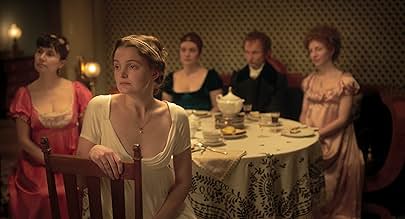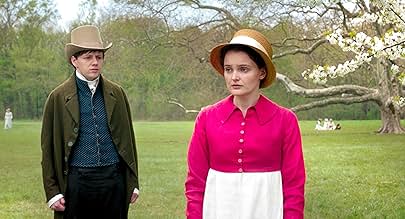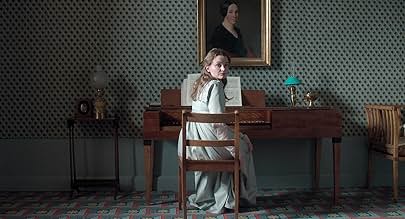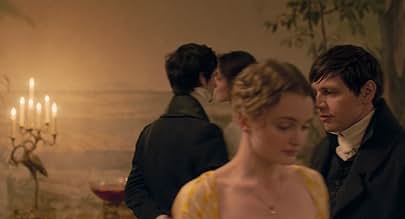"Would you care to die with me?" It's a question you'd perhaps expect to hear being uttered from one of Hollywood's more overused basement sets, rather than that of a stately German home during dinner. Austrian writer/ director Jessica Hausner's sixth feature is a study of death as an act of love in the midst of a Prussian Empire on the cusp of French-inspired political and social reformation. Set between 1810 and 1811, the film follows a young romantic poet, Heimlich (Christian Friedel), as he seeks out a partner for what he believes is a perfect act of love and the solution to his melancholic woes; a shared death. After his cousin spurns his fatalistic advances, Heimlich turns his attentions to Henriette (Birte Schnoeik), the wife of a business associate and a woman diagnosed with a terminal condition. What transpires is a drawn out courtship, with an underlying will-they-won't- they murder-suicide pact theme.
Far from the dashing romantic image a period poet might evoke, Friedel's Heimlich moves awkwardly through the picture as a skulking, slightly greasy weirdo. He's the Seventeenth Century love child of Max Schrek's Nosferatu and How I Met Your Mother's Ted Mosby, desperately searching for his elusive dream girl. Pursuing his prospective suitors and explaining his desire for this mutual suicide with all the cold, Germanic logic of a Kraftwerk track, "First I will shoot you and then myself". Still in Hausner's depiction of upper-middle class Prussian life, it's perhaps not inconceivable that his offer is met with more of a curious enthusiasm than it is with laughter and a one-way trip to the gallows.
There's a visually cruel symmetry to the set design. The rooms at a glance are large and grand, but their interiors sparse and utilitarian. Carpets, drapes and walls are covered with maddeningly geometric, repetitive patterns and each static shot looks like the kind of uninspired Seventeenth Century painting that one might find adorning a Twentieth Century biscuit tin. The colour palate is oddly muted. The characters move in precise, robotic motions, which seem designed to minimise the energy spent. Indeed, the stately group dance in the third act seems to ironically be the least choreographed in the entire film. It's as if this world, one where the sole form of entertainment is gathering around a piano to listen to a child hammer out macabre songs, would be so repressively dull as to make the offer of a late afternoon fatality a tantalising thought. Indeed, while planning their final moments, Henriette seems to have the sheepish smile of a young woman who's been flaunting her ankles all over Berlin. That's almost all the facial emotion that we see throughout the entire ninety-six minutes.
Ultimately, it's not all that easy to ascertain what Hausner's sterile slice of period drama is trying to convey. It could be that death, like social change is inevitable, so we might as well enjoy it, rather than hide from it in denial. However, it's a little hard to walk away thinking that the past would have been anything but a torturous purgatory, of which death would have been the kindest release. Perhaps mercifully, the viewers' time there is, in cinematic terms, rather brief.































